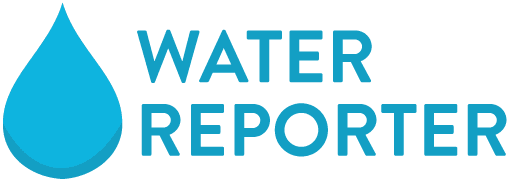Third parties are vital to monitoring pollution
It takes sustained, vigilant action by individuals, organizations and communities to watchdog polluting industries in the U.S. Pollution by businesses is regulated under a permit system, granting government-issued authorization to pollute the air or water. Permits limit the type and amount of pollution, and require industries to treat or capture as much pollution as is “reasonable.”
Third parties play a critical roll in monitoring pollution permits to protect everyone’s water and air. Our staff scientists monitor Whatcom and Skagit waterways along with Discharge Monitoring Reports to check for accurate and timely reporting as well as pollution exceedances. Our team also crafts thorough, deeply-researched comments that carry particular weight for government agencies when they’re updating regulations or considering offering permits. Read more about how RE Sources and our North Sound Baykeeper team hold polluters accountable.
Your voice matters, too
In Washington, pollution permits are issued under the National Pollution Discharge Elimination System (NPDES) and regulated by the state Department of Ecology. When permits come up for review, the community can be part of the public process and comment on the details of the permit, calling for stronger environmental safeguards where necessary.
See current openings for you to weigh in on this page’s Take Action tab — it’s how you can speak up in favor of clean air, clean water, safer products and public places. We’ll share more than just individual business pollution permits on this page too, so be sure to check back regularly! We also send you Action Alerts when your comments can help sway decision-makers to protect public health and water quality. Sign up for our newsletters.
The Washington State Department of Ecology is the delegated authority to enforce clean water standards. Stormwater and wastewater are permitted under the National Pollution Discharge Elimination System (NPDES) and encompass several different categories, including:
-
- Stormwater General Permits — Stormwater is rain or snow that runs off of rooftops and paved streets, driveways, and parking lots that picks up pollutants along the way and transports them to local water bodies. Stormwater is the leading source of contamination in the Salish Sea
- Industrial Stormwater General Permit (ISGP) — for factories and businesses that contribute to stormwater pollution.
- Construction Stormwater General Permit (CSWGP) — to manage muddy water, debris, and chemicals that can be created on construction sites.
- Municipal Stormwater General Permit (MSGP) — to regulate stormwater discharges from cities, schools, and roads, rest areas, and ferry terminals that are operated by Washington State Department of Transportation (WSDOT).
- Boatyard General Permit — to cover construction, repair, or maintenance of small vessels. Antifouling agents used to protect boats can be very harmful to marine life.
- Concentrated Animal Feeding Operations (CAFO) General Permit — for operations that confine livestock for long periods of time in pens or barns that discharge pollution including fecal coliform and nutrients to surface or groundwater.
- Sand and Gravel General Permit — to regulate discharges that occur from sand and gravel operations, rock quarries, concrete factories, and hot mix asphalt operations.
- Water Treatment Plant General Permit (WTPGP) — to ensure that the waste water originating from the production of safe drinking water does not contain disease-causing organisms, sediment, or treatment chemicals.
- Washington State Department of Transportation Municipal Stormwater Permit — The WSDOT permit covers highway systems within the same urbanized areas covered under the MSGP.
- Stormwater General Permits — Stormwater is rain or snow that runs off of rooftops and paved streets, driveways, and parking lots that picks up pollutants along the way and transports them to local water bodies. Stormwater is the leading source of contamination in the Salish Sea
When polluters don’t fit into one of the General Permit categories they are required to get a Water Quality Individual Permit, which as the name applies, is a unique permit written for that specific operation.

